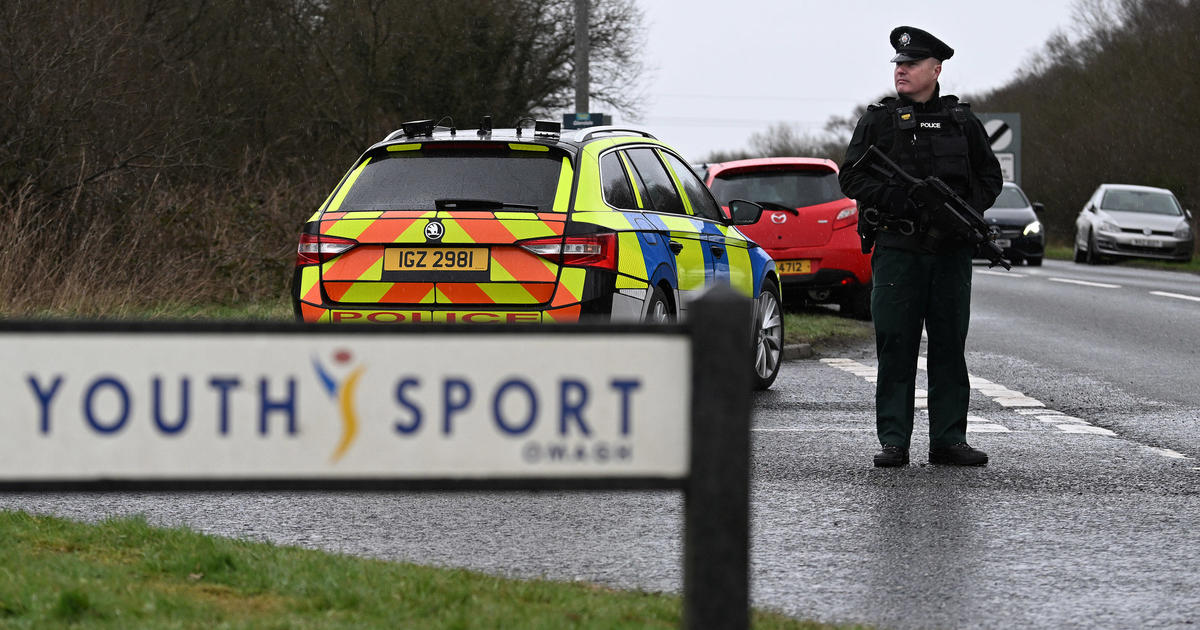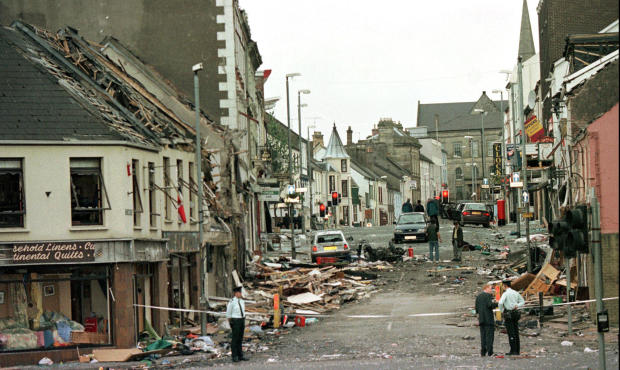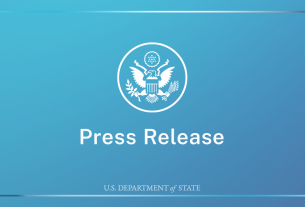A senior off-duty police officer was in critical but stable condition Thursday after being shot by masked men in front of his son in Northern Ireland. Three men were arrested in connection with the Wednesday night shooting, and police said a chief focus of their investigation was the nationalist dissident group, the New IRA, an armed breakaway faction of the Irish Republican Army.
Detective Chief Inspector John Caldwell was “shot a number of times” by two masked gunmen before being rushed to a local hospital, police services in Northern Ireland said.
Charles McQuillan/Getty
Senior police officer Mark McEwan told BBC News that Caldwell was loading soccer balls into the back of his car after coaching children at a local sports complex and that he was accompanied by his son when he was shot multiple times by the gunmen.
The officers said detectives in the case had set a focus on Irish republican dissident groups, with a “primary focus” on the New IRA, while “keeping an open mind.”
British Prime Minister Rishi Sunak and Ireland’s leader Leo Varadkar denounced the shooting, with Sunak calling it “disgraceful.”
Michelle O’Neill and Jeffrey Donaldsen, the respective leaders of Northern Ireland’s most prominent nationalist and British unionist parties, also roundly condemned the attack in a rare cross-party statement.
“We stand united in our outright condemnation of this attack… There is absolutely no tolerance for such attacks by the enemies of our peace,” the statement said.
Irish unionists are predominantly Protestant. They want Northern Ireland’s existing close ties with Great Britain to remain in-tact. Nationalists are largely Catholic, and they want the North to forge closer ties with the Republic of Ireland, which gained independence from British rule in 1921.
The attack on Caldwell has fueled long-simmering fears of a possible return to the dark period of sectarian conflict commonly known as “The Troubles,” which consumed Northern Ireland for three decades and claimed more than 3,000 lives.
The conflict was defined by entrenched sectarian violence between Catholic nationalist paramilitary group the Irish Republican Army (IRA), and Protestant paramilitary groups, the Ulster Volunteer Force and the Ulster Defence Association.
The attack on Caldwell Wednesday took place in the market town of Omagh, which was the site of the deadliest attack of the Troubles era when 29 people were killed by an IRA-planted car bomb in 1998.
Paul McErlane/AP
For 25 years, Northern Ireland has flourished under a largely successful peace process, brokered with significant input from the U.S., since the signing of the 1998 Good Friday Agreement, which acknowledges Northern Ireland’s constitutional status as part of the United Kingdom but also states that a united Ireland could come about if a majority of people in both the Irish Republic and Northern Ireland vote for it.
The old tension resurfaced in Northern Ireland following the United Kingdom’s exit from the European Union, of which the Republic of Ireland is a member.
The Northern Ireland protocol — a trade agreement designed to ensure there’s no return to a “hard border” for goods and people between the Republic of Ireland and Northern Ireland following Britain’s exit from the EU — quickly drew the ire of unionists, who believe the agreement threatens Northern Ireland’s British status and could lead to1 a united Ireland.
In recent days, British premier Sunak has been engaged in talks with Irish and EU officials on a revised agreement in an effort to curb the tension, but there have been no breakthroughs reported.
With no agreement imminent, Wednesday’s shooting is likely to exacerbate the tension ahead of a rumored visit by U.S. President Joe Biden to Ireland in April, which would coincide with the anniversary of the signing of the Good Friday Agreement.
Irish media have reported that the exact timing of any visit by the U.S. leader — who has warned repeatedly about any moves that might disrupt the fragile peace on the Irish island — will depend on a new agreement being reached over the Northern Ireland protocol.





